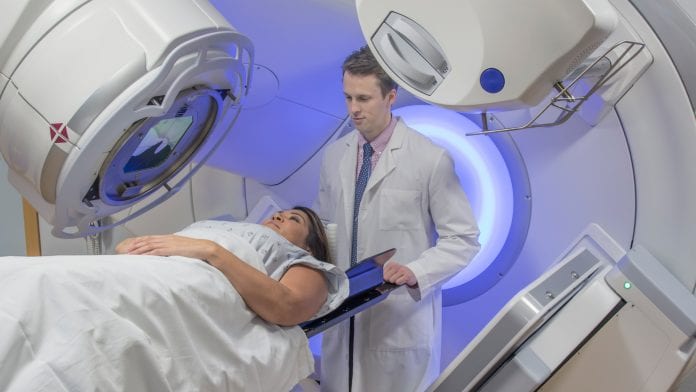
Researchers have made a groundbreaking discovery in advancing treatments for HER2-positive breast cancer, one of the most aggressive forms of the disease.
Conducted by a team at the cytoskeleton organisation and cell-migration research unit of the Montreal Clinical Research Institute, the novel research has identified a highly promising therapeutic target that may potentially be able to counter HER2-positive breast cancer, enhancing future treatments of the disease.
The research is published in the journal PNAS.
The implications of HER2-positive breast cancer
HER2-positive breast cancer contains a gene called HER2 that initiates an aggressive form of the disease. The gene is estimated to occur in around 20-30% of breast cancer tumours, with a poor prognosis being attributable to the HER2-positive subtype. When tumour cells begin spreading and metastasising to other organs, this can considerably hurt a patients’ chances of defeating the disease, as this can impede crucial body functions. In recent years, personalised medicine has provided hope for patients with HER2-positive breast cancer; however, relapses from the disease are still prevalent.
For drug-resistant patients, immunotherapy is a vital method of combatting HER2-positive breast cancer; however, so far, there has been no apparent benefit to the treatment, leading researchers to investigate the tumour’s immune environment to better target treatments that respond to specific patients best.
Investigating hypoxia
To enhance their understanding, the team analysed a phenomenon in solid tumours called hypoxia, which is generated by a lack of oxygen that is exacerbated by the rapid growth of the tumour, resulting in the production of metastases, a weakened immune system, and resistance to treatment. Essentially, hypoxia fatally promotes cancer progression by enhancing the aggressiveness of tumours while simultaneously reducing the body’s ability to defend itself, often a fatal combination for HER2-positive breast cancer patients.
Through utilising a preclinical model, the team were able to identify a protein called AXL – known to be paramount in hypoxia taking place. The team employed a plethora of new techniques to block AXL from working in the tumour, and in doing so, observed the blood vessels recover, the tumour’s immune environment starts to replenish, and the ability of the tumour to metastasise in other organs reduced.
Marie-Anne Goyette, the first author of the study, said: “It’s as if we had succeeded, on the one hand, in breaking down the protective walls of the tumour against the immune system, thus making it more vulnerable to immunological treatments, and, on the other hand, in preventing the tumour from moving elsewhere.”
Professor Jean-François Côté, the leader of the study from the Université de Montréal, said: “Cutting-edge personalised medicine in immunology has faced significant resistance from this type of cancer, and we had the expertise in molecular research to help overcome these obstacles. We have not only shed light on a central mechanism of the functioning of some of the most aggressive tumours, but in doing so, we have also unveiled a way to create an environment conducive to more effective treatments.”







